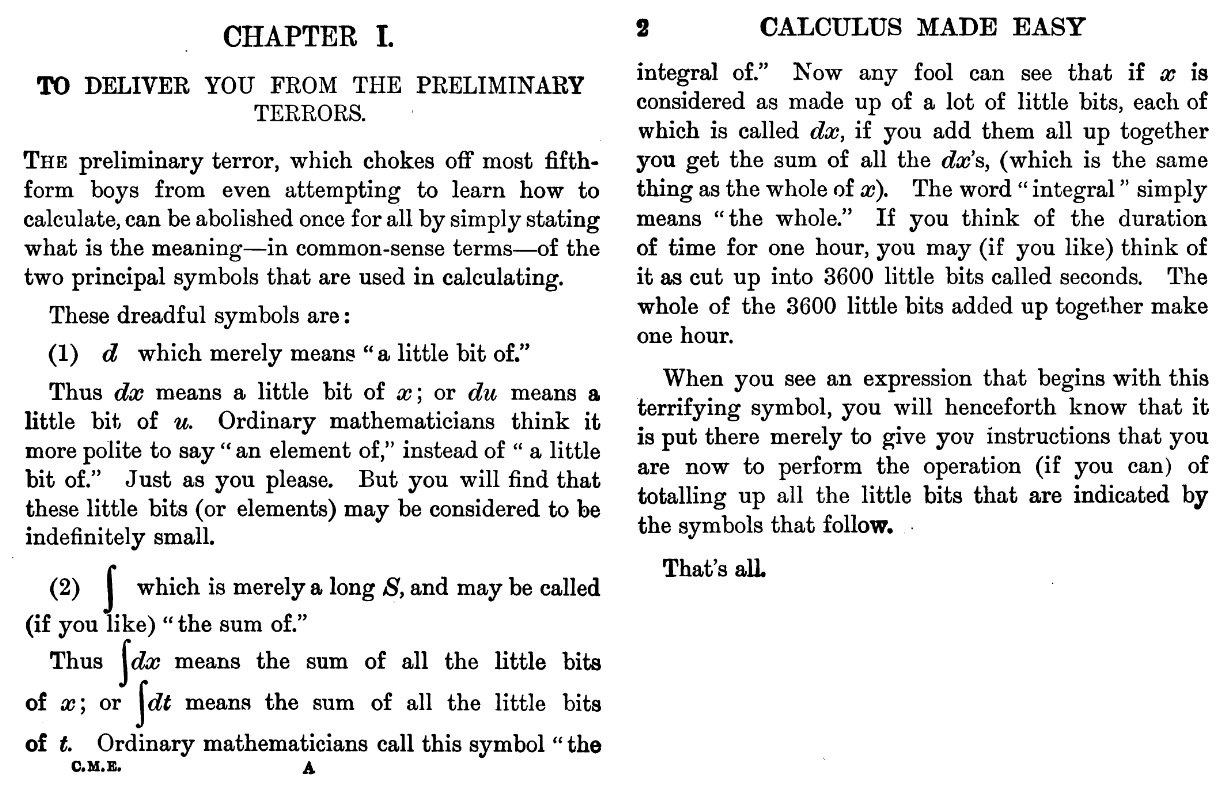Add a new page:

Recommended Short Reads
Recommended Books:
Source: https://www.physicsforums.com/threads/any-calculus-starter-textbook-suggestions.905408/
A nice video introduction is
A more appropriate analogy would be that of calculus in its early days, more specifically when it was still plagued by infinitesimals { a very small quantity which is greater than zero yet less than any positive number, if you will. Sometimes we still think in this way, especially in physics (but this is because we already know that if we wish, we could always make it rigorous). The philosopher Berkeley was the first one to challenge the foundation of calculus. He remarked: They are neither finite quantities nor quantities infinitely small, nor yet nothing. May we not call them the ghosts of departed quantities? It was due to criticism like this that finally led to rigorous formulation of calculus in terms of $\epsilon$ and δ now dreaded by beginning mathematics students [7] Note: Where is the Commutation Relation Hiding in the Path Integral Formulation? byYen Chin Ong
and ref 7 is: J. V. Grabiber, Who Gave You the Epsilon? Cauchy and the Origins of Rigorous Calculus, the American Mathematical Monthly, March 1983, Vol.90, No.3, 185-194.
See also https://www.physicsforums.com/insights/the-pantheon-of-derivatives-i/ and "The Cauchy-Schwarz Master Class"
We usually take shapes and formulas at face value, as a single pattern. Calculus gives us two superpowers to dig deeper:
X-Ray Vision: You see the hidden pieces inside a pattern. You don't just see the tree, you know it's made of rings, with another growing as we speak.
Time-Lapse Vision: You see the future path of an object laid out before you (cool, right?). "Hey, there's the moon. In the next few days it'll be rising and changing to a nice red color. I'll wait 6 days and take the perfect photo then."
So why is Calculus useful? Well, just imagine having X-Ray or Time-Lapse vision to use at will. That object over there, how was it put together? What will happen to it?